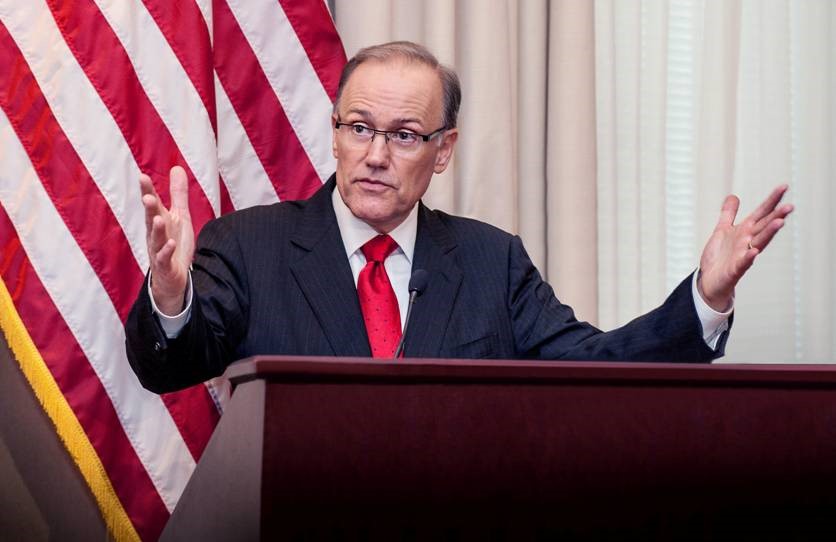

Mr. Pooley’s storied career mirrors the development and innovation of Silicon Valley. He began in Palo Alto in 1973 trying commercial cases, primarily fights between startups over proprietary technology. Ten years later, he wrote his first business book, “Trade Secrets.” In 1997 he introduced his legal treatise by the same name, which has become part of the IP canon and a vital desk reference for practitioners.
As the technology industry grew, so did Jim’s practice. He was a senior partner at several large firms where he focused on trade secret and patent litigation. His successful jury defense of Adobe Systems as lead trial counsel in a patent infringement case was chosen by the National Law Journal as the only IP case among its Top Defense Verdicts of 1997.
Mr. Pooley continued as a highly sought-after expert and trial lawyer in courts and in alternative dispute resolution, where he served as both advocate and neutral. In 2003, Jim co-authored the first edition of the "Trade Secret Case Management Judicial Guide", which was published by the Federal Judicial Center and is now in its fourth edition. In 2009, he was one of four co-authors of the initial “Patent Case Management Judicial Guide,” a comprehensive reference for both judges and lawyers, also published by the Federal Judicial Center.
That same year, Mr. Pooley was appointed by the White House to become Deputy Director General of the World Intellectual Property Organization, an agency of the United Nations. Based in Geneva, Mr. Pooley was responsible for the international patent system (PCT). He spent five years as the U.N.'s top U.S. diplomat for intellectual property, championing the rights of IP owners, advocating for fair enforcement, and dealing with increasing public and private sector concern about cybersecurity in an age of heightened threats.
Upon returning to Silicon Valley, Mr. Pooley completed “Secrets: Managing Information Assets in the Age of Cyberespionage” (Verus Press, 2015). The book is a clarion call for both lawyers and business executives about the increasing difficulty of keeping corporate information private in a hyperconnected world. It has garnered praise from those at the apex of the tech world, as well as reviews attesting to the quality of its important and accessible content. Due to the popularity of the first edition of the book, Mr. Pooley released the second edition of Secrets in 2024, containing substantive updates related to artificial intelligence, CoVID-19, the trade war with China, and the passage of the Defend Trade Secrets Act. The book has also been fully translated in Mandarin and published by Tsinghua University Press.
Mr. Pooley taught for many years as an adjunct professor of law, and is an active lecturer and keynote speaker. His most recent law review article is "A Brief History of Trade Secret Law," published by AIPLA Quarterly.
On December 2, 2015 Mr. Pooley was invited by the U.S. Senate Committee on the Judiciary to testify as an expert on trade secret law and litigation, discussing the proposed Defend Trade Secrets Act. That legislation created, for the first time, a federal civil claim for misappropriation of a company’s know-how. Read his testimony and see the video here.
Mr. Pooley has served as President of the American Intellectual Property Association (AIPLA) and is a past chairman of the selection board of the National Inventors Hall of Fame (NIHF).
In 2016, Mr. Pooley was named to the IP Hall of Fame, and in 2017 he was honored with a Lifetime Achievement Award by Managing Intellectual Property. Read more here. He also received a Lifetime Achievement Award from The Sedona Conference, where he was a founding Chair and now Chair Emeritus of The Sedona Conference Working Group on Trade Secrets.
In Mr. Pooley's private practice, he serves as a trusted advisor and trade secret co-counsel to legal departments and law firms on IP litigation and strategy. He conducts pre-litigation investigation and analysis of domestic and multinational IP issues, drawing on his global experience. He also assists courts as a special master handling discovery in complex technology and IP disputes.
Mr. Pooley helps design and improve information security strategies and programs for companies, including trade secret risk analysis, protection systems, training, and crisis response. He frequently works in conjunction with cybersecurity professionals to limit risks to key corporate assets and data.
Mr. Pooley graduated in 1973 from Columbia University Law School as a Harlan Fiske Stone Scholar. He is a 1970 honors graduate of Lafayette College.











